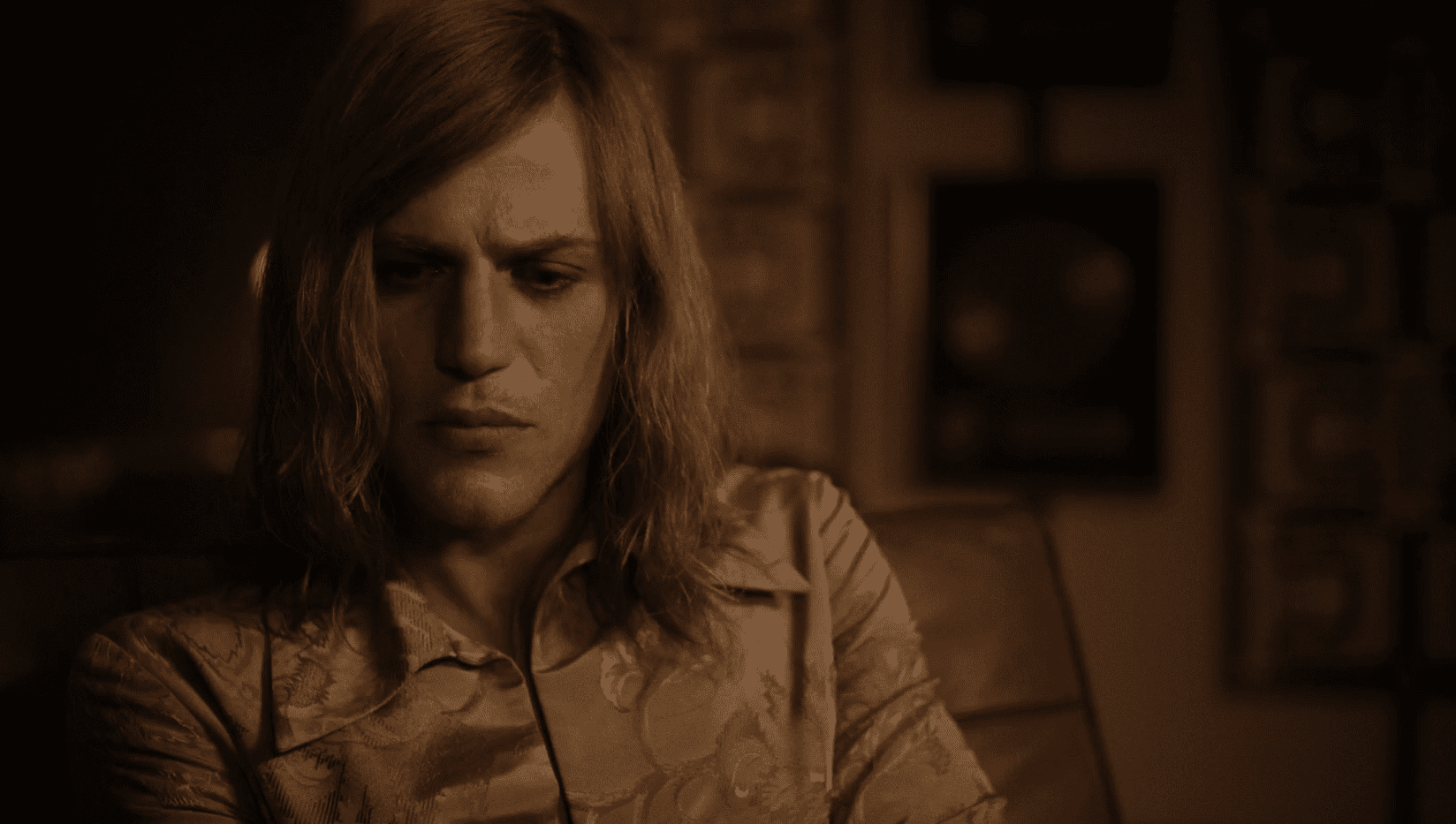Movie Review: Stardust
30th November 2020
Copyright: IFC Films
The legacy of musician, artist, and innovator of pop culture David Bowie will never quite be tainted by anything that fumbles his work in a cash-in retrospective. He released too much good music that millions, including myself, adore, to be harmed by any hack job or horror show that tries to tell the tale of Bowie’s life. Still, Stardust tries its absolute best.
Whilst the 2001: A Space Odyssey opening is rather on the nose, what follows the remaining hour and forty minutes is nothing short of a disaster. Christopher Bell’s writing for these characters is a smarmy disaster, replicating the worst aspects of Bohemian Rhapsody and funnelling them. A refusal from Bowie’s estate to use his music leaves a gaping hole that every biopic needs, music from the artist. You can see where the musical cues should go, and whoever tried to capture the charming, unique style of Bowie’s music up to this point fails miserably. Still, they managed to get Port of Amsterdam in there, a cover Bowie recorded quite some time after this tour. Sometimes the writer remembers it’s set during the turmoil of the Vietnam war, other times it remembers the creative mindset and series of events that led to the creation of Ziggy Stardust. It’s an odd mixture, to say the least.
Johnny Flynn, sounding and looking more like a horrendous mixture of Johnny Depp’s mannerisms, Russell Brand’s clothing style, and all the acting abilities of a knitted scarf. If you weren’t told this was meant to be Bowie in the immediate first moments, then you’d be forgiven for mistaking Flynn as just about anyone else. The inefficient, insulting quality of the performances carries over to the technical aspects of this piece. A noticeably horrid green screen used to commit us to expressionless, road trip horror show, where Flynn stares, empty-minded and hollow out of the window as a heavily makeup-clad Marc Maron chauffer’s his monotony around America. Dramatically removed from any form of reality, baseless accusations and ideas thrown into the fray on the off chance of equating Bowie to whatever was hip at the time. Most of the comparisons made are to bands who were either in the same position as Bowie or were fading stars in their own right.
Characters that are invented solely for the sake of exposition, and the exposition is just plain wrong. Did White by The Beatles ever sink to the depths of hate expressed by Stardust? No, it didn’t. Range’s work here isn’t just a failing of the artist at its core, but of the music industry and scene entirely. The film can’t escape the contemporary view of the bands, music, and identity it looks to develop for us, and the result is a victory lap celebrating the life of a great artist by going vehemently against his express wishes. An insult to music, film, and art itself.
![]()


